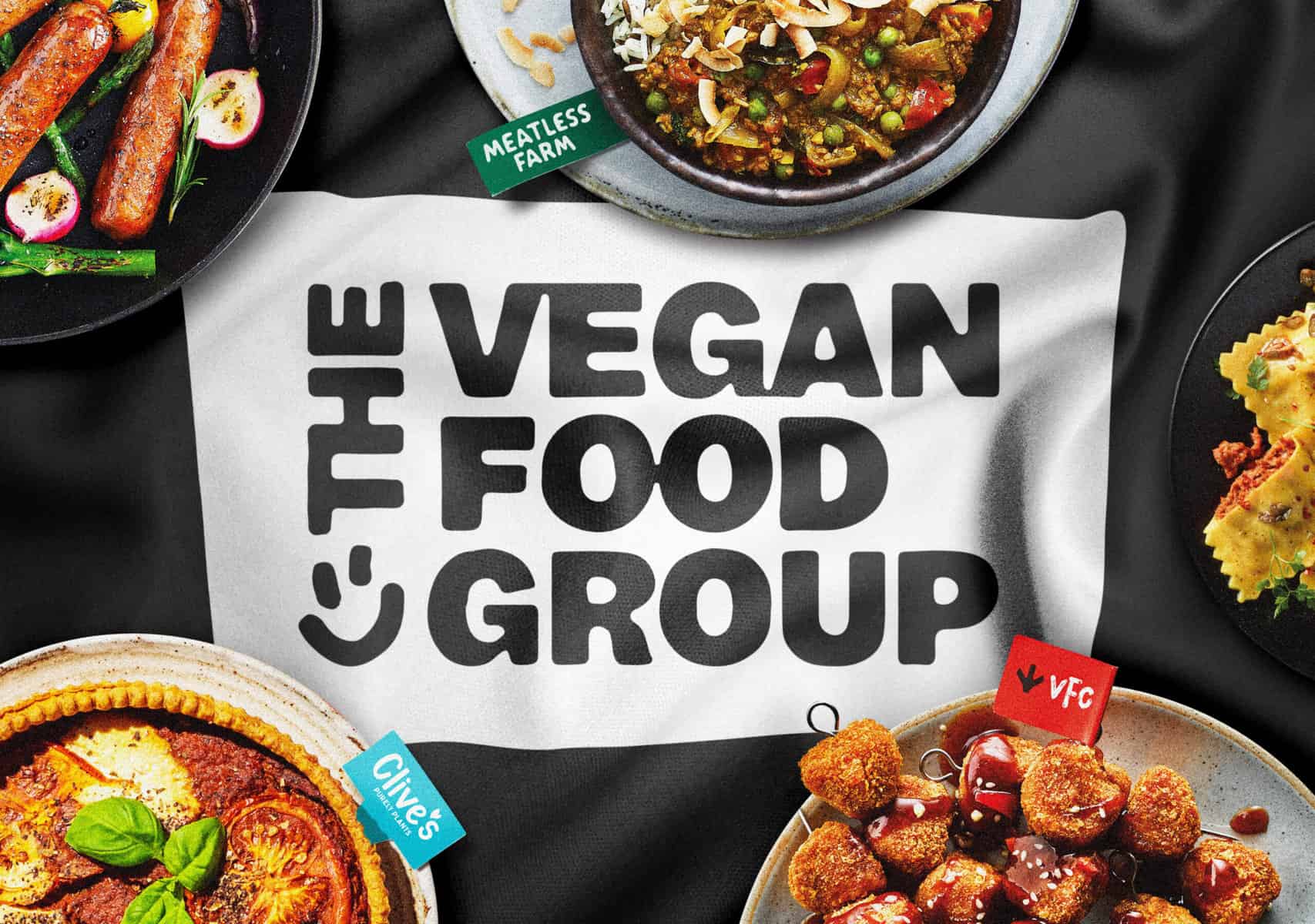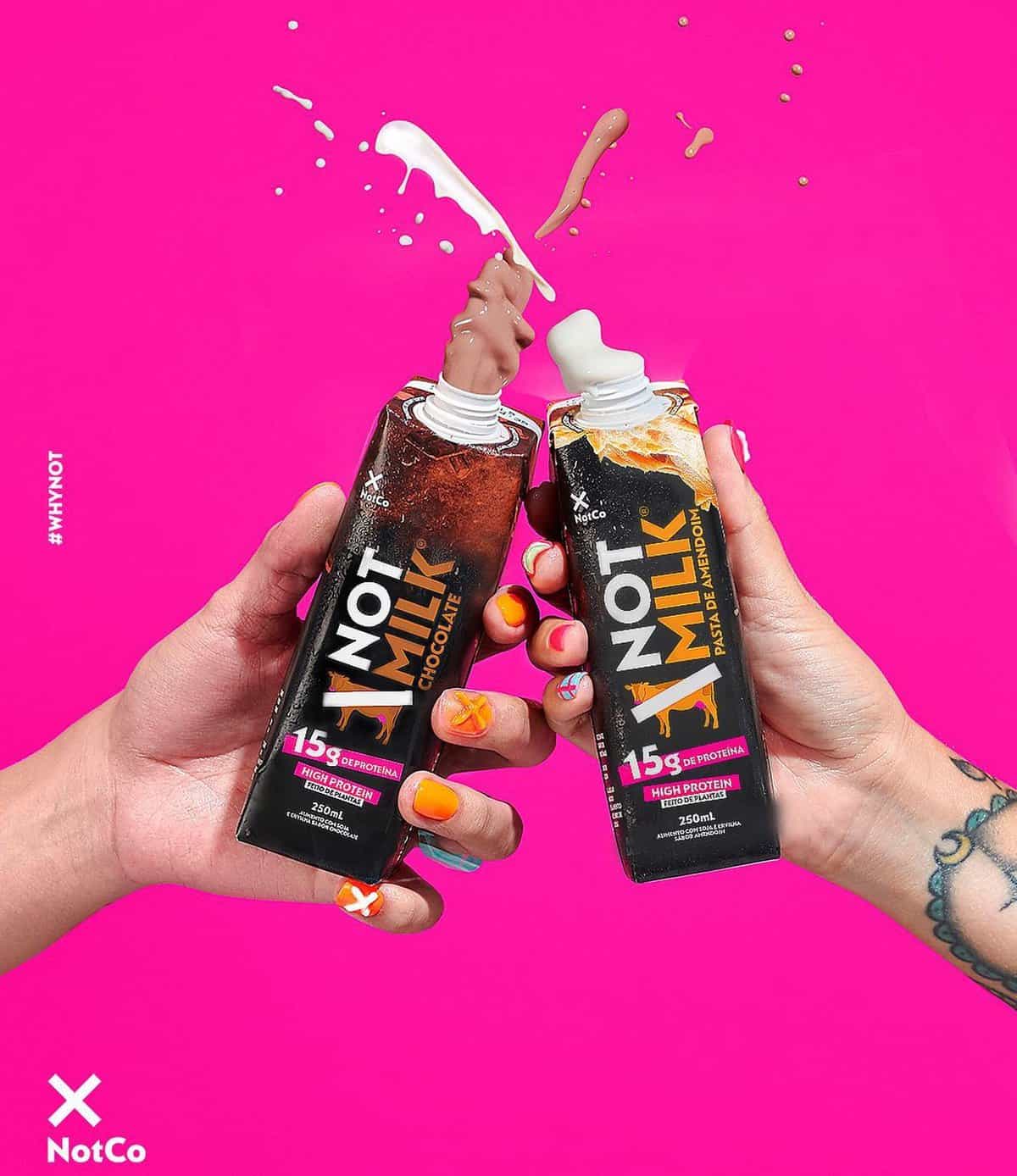Matthew Glover on VFG: “We’ll Be Able to Offer Retailers a ‘One-Stop Shop’ for a Wide Range of Plant-Based SKUs” – vegconomist

This week, vegan challenger brand VFC and its parent company VFC Foods became Vegan Food Group (VFG) presently including its acquired brands Meatless Farm and Clive’s Purely Plants, with plans for continuous strategic acquisitions.
The move heralds a “transformative era in the plant-based food sector” according to Glover, who foresees a near future for the vegan industry based on collaborative efforts, “this is an opportunity for both VFG and the wider movement,” he says.
Here Glover tells us more about the new group and its vision, along with an upcoming side project that will be of interest to many in the space.
Can you elaborate on the vision behind transforming VFC Foods into The Vegan Food Group? What was the stimulus?
Well, I guess it all started when Meatless Farm got into trouble. We felt the brand and product range was too important to lose, and could be folded into the VFC infrastructure. Whilst there were challenges associated with the integration, we were really happy with how smoothly it all went – and so were retailers and consumers.

Also worth noting is that as VFC founders, Adam and I quickly realised that we needed to bring in experts from the food sector to help us scale our business. We also quickly figured out that neither of us should lead the company so we promoted Dave Sparrow to CEO, and he’s built a really smart team of professionals. It wasn’t our initial plan but we realised we’d created a platform which allowed us to consider a group strategic approach, where we could expand both organically and through M&A growth.
It’s clear that many of the plant-based start-ups have struggled to hit the fast growth trajectories expected, and with the appetite for investing in this space having cooled, there’s going to be a lot more consolidation required. Some really exciting startups are going to need to consider whether to merge, sell or disappear, and this is an opportunity for both VFG and the wider movement.
And, it’s not just startups. There’s legacy plant-based brands and manufacturers who have demonstrated profitability and market fit over many years, who could benefit from being part of a wider FMCG product portfolio. We’re interested in talking to any business which has demonstrated success and helps improve our offering.

What will be the key differences between The Vegan Food Group and LIVEKINDLY Co?
It would be wrong for me to speculate on the Live Kindly Collective’s strategy as I’m not sure what their plans are long term. But, it’s clear that they’ve pioneered the ‘vegan Unilever’ model, and we’re doing something very similar. We’ll have a different range of brands and products, and will be trading in different countries and retailers. Vegan Food Group will also trade beyond just meat alternatives, and we’re already manufacturing veg-led pies and baked goods.
I think what’s important is we recognise that working together and consolidation is going to be the new normal over the next few years. VFG is keen to play a leading role in that process, alongside LiveKindly Collective and others.
Currently, your portfolio brands cover meat alternatives and baked goods, what are you eyeing next, what makes sense and is important to the group?
Great question! Our next acquisition (coming soon!) will give you and the readers a better flavour of what’s coming next.
“…working together and consolidation is going to be the new normal over the next few years”
In the past, my interest has been in what products are going to have the biggest opportunity to remove animals from the food system. In the future meat alts are going to play a central role at VFG, but they’ll sit alongside other plant-based offerings which may have better margins and appeal to consumers.
VFG will be operating in frozen, chilled and ambient across multiple categories, in both retail and foodservice, and in multiple countries. When looking at M&A opportunities we’ll be careful not to cannibalise our existing range, but add brands which diversify our offering.

“Imagine a ‘vegan Unilever’, but with the majority of future profits being donated to effective animal charities and diet change initiatives” – please can you expand on this, which kind of charities would you work with and please explain more about the diet change initiatives.
VFG is majority-owned by Veg Capital which has committed to giving all future profits to charity. Veg Capital is an extension of Ahimsa Foundation which has also invested in other plant-based brands in recent years.
Whilst we haven’t made profits yet, Veg Capital’s commitment is to distribute dividends or proceeds from exits to those charities which have the biggest opportunity to move the needle for farmed animals. So, we’ll be looking at which organisations are delivering campaigns that are reaching a mainstream audience with a clear diet change message and in a cost effective way. I wouldn’t like to speculate on the charities we’d support, as we’re not in a position to donate yet, but we’ll analyse what’s cutting through at the time.
By uniting multiple brands, you say you will be able to “leverage collective strengths and optimise supply chains, fostering innovation and setting new industry benchmarks,” – can you say more about your ideas in terms of innovation? What kinds of innovations are needed in the space, in your opinion? And how do you perceive said industry benchmarks?
By uniting brands within the VFG structure we can create operational efficiencies by streamlining processes, and achieving economies of scale. This consolidation enables VFG’s brands to leverage combined expertise and resources, enhancing our competitive edge and market position.

We’ll be able to offer retailers a ‘one-stop shop’ for a wide range of plant-based SKUs. Retailers are cutting the long tail of plant-based SKUs which makes it difficult for the smaller startups to survive, whilst reducing their list of suppliers. My intuition is that innovation in the future will be less quantity and better quality. Much of this work is already ongoing, but some of the innovations might not make it to menus or supermarket shelves without the funding and scale. So, that’s where VFG can help with our connections and distribution.
“The word ‘plant-based’ has taken a knock recently with all the meat industry disinformation campaigns, so we may need to go back to the drawing board as a movement”
Innovation isn’t one dimensional. Our goal is to get people down the aisle picking up our products whether they’re chilled, frozen or ambient. To do this we need to ensure that the retail price of our NPD is as close to the non-vegan product variant as possible. We will have NPD for multiple shopping occasions, be it food on the go, a meal for tonight or part of a bigger weekly shop. And, we’ll continue to improve the quality, and, most importantly, give the consumers the products they need in their day-to-day lives.
How will VFG balance the goals of business growth with its stated mission of contributing profits to effective animal charities and diet change initiatives?
I think I’ve mostly answered this in a previous question. But, just to add, there’ll need to be discussions around reinvesting profits in growth, and whether the time is right to donate. This’ll be a wonderful conundrum to face, and one which I’m looking forward to discussing with the team in due course. In the meantime, our plan for 2024 is to at least reach breakeven.

How does VFG intend to ensure that vegan food is not only accessible but also appealing to a broad consumer base? VFC often uses humour in its messaging, will this continue as a theme across the group?
Each brand will have a different personality. VFC has been edgy and sassy, Meatless Farm has targeted the ‘flexitarians’ with more of a sustainability slant, whereas Clive’s has led on provenance, organic and veg-led.
As Chief Mission Officer I’m keen that we don’t lose sight of why we’re doing this – to reduce the suffering of animals. But, that mission could be articulated in different ways by different brands, under a common VFG umbrella. I’m still new to the job, so I’m looking forward to seeing how we develop this as a team.
As co-founders, Adam and I will certainly be pushing to ensure the mission is very clear not just in what we say, but how we all think as a team. The operational team will be focused on accessibility to great tasting vegan food which is one of our key pillars for future growth. This will be achieved by working closely with our fantastic retail, foodservice and B2B customers, whilst supplying the quality that is appealing to the mass market.

Several media reports have spoken about the consumer preference away from the word “vegan” in labelling and messaging, however you have previously discussed the importance of retaining use of this word and its significance over “plant-based”. Will this be carried through the group’s brands in spite of what has been put forward about the consumer distaste of the word?
So, my previous commentary on this was more related to the VFC brand, and how some brands are better leaning into the ‘V word’ and discussing animals. I stand by that position for VFC – an activist brand which just happens to sell food.
For the wider group, we’ll be more nuanced in the language we’re using depending upon the brands, and also the wider narrative in society. The word ‘plant-based’ has taken a knock recently with all the meat industry disinformation campaigns, so we may need to go back to the drawing board as a movement.
I’m working in the background with Indy Kaur on a ‘vegan checkoff’ initiative, and the research from that process could influence the movement going forward. It’s clear to me that investment in generic consumer campaigns should have been trialled, alongside all the investment in food tech. Had that happened the water level for the whole sector would have been higher, and we’d have been better prepared to counter the misinformation.
But, there’s no point regretting missteps from the past. The next best time to launch a vegan checkoff project is now, and I hope others will support us.




